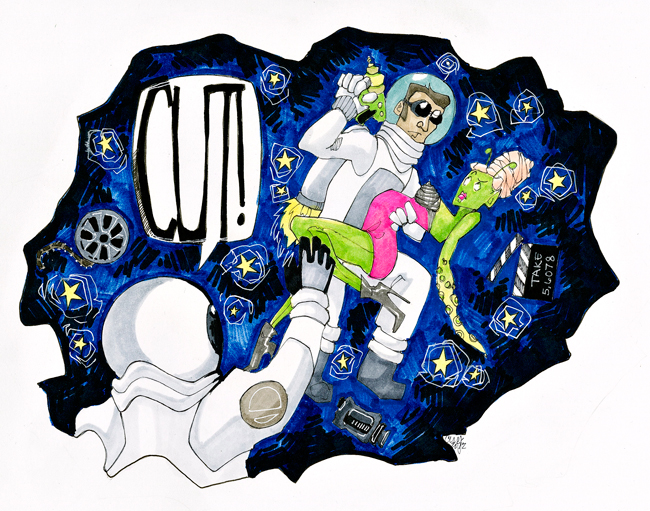
Editor’s note: This is a semester-long column recapping some of the exciting new scientific developments of the week. Robert Starr is a Ph.D. student studying physics.
Scientist Sees Dark Galaxy: Simona Vegetti, an MIT physicist, has discovered an entire galaxy that seems to be composed of “dark matter,” a mysterious and invisible substance that makes up an estimated 95 percent of the matter in our universe. Not much is known about dark matter, other than it has mass and doesn’t reflect light, but scientists have other methods of detecting it. For instance, highly massive objects can noticeably bend light just like a lens does. As such, by studying these bends in light, Vegetti managed to infer that a galaxy-sized object made of dark matter existed outside of our own galaxy.
Comet Disintegrates into Sun: Fortunately, in our own galaxy, many things do reflect light, including comets crashing into the sun. A study published in “Science” has verified that video taken last summer is of a comet vaporizing in the sun’s atmosphere, something that hadn’t been filmed before. The video is a result of a new satellite specifically designed to study the sun and reveals a big ball of ice about the size of a small aircraft carrier grazing the sun at less than 60,400 miles from the surface at a speed of 372 miles per second, breaking up in the process. While it may seem to happen too fast for most casual viewers to see anything without re-watching the video several times and being told exactly where to look, it’s provided scientists with an abundance of data and proves the effectiveness of the new satellite.
Look Out, George Lucas: Along with that satellite, we also have an International Space Station orbiting the earth, which occasionally welcomes civilians aboard for a hefty fee. One of these civilians, Richard Garriott, filmed an eight-minute science fiction movie called “Apogee of Fear” while on board in 2008.
Though NASA previously wouldn’t permit him to release the movie (as it was not part of their original agreement with him), they changed their stance this week and stated that they “hope to resolve the remaining issues” and allow the film to be released to the public.
Want to Live to 100? Look to Your Parents: A new study suggests that the ability to live to 100 may have a significant genetic component, though perhaps not as strong as previously thought. As a follow-up to a problematic study from a year and a half ago which suggested that researchers could predict whether you would be a centenarian with 77 percent accuracy just by looking at your genes, scientists reevaluated the data and found that they could only predict individuals’ ability to reach 100 with about a 60 percent certainty. This jumps to 85 percent with older individuals, suggesting that when you reach a certain age, genes play a stronger role in longevity than they do when you’re younger.
I Can Calculate That with My Eyes Closed: A group of researchers at the University of Vienna have demonstrated that it’s possible to develop a computer that can process information without actually being privy to that information — in other words, blind computation. While this is part of a “quantum computer,” a theoretical system based on quantum mechanical properties that’s still a long way from seeing the light of day outside of a research lab, it has huge implications when combined with cloud computing. One of the major fears of “the cloud” is how it renders privacy obsolete. However, with this type of system, we could have the power of a cloud-based system without sacrificing our personal information to it.





















